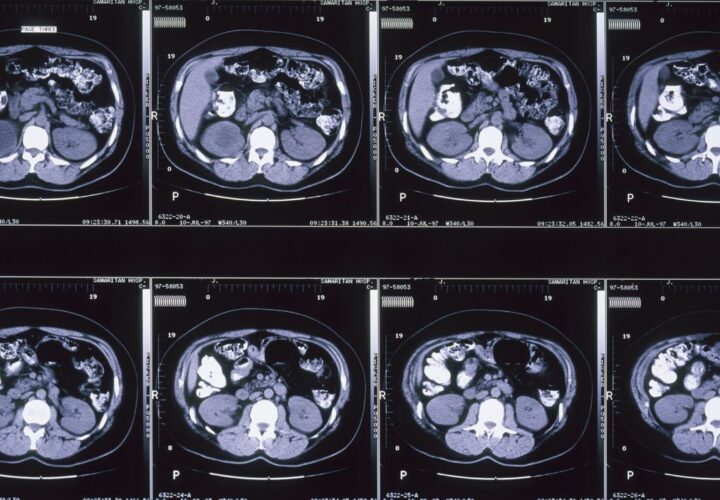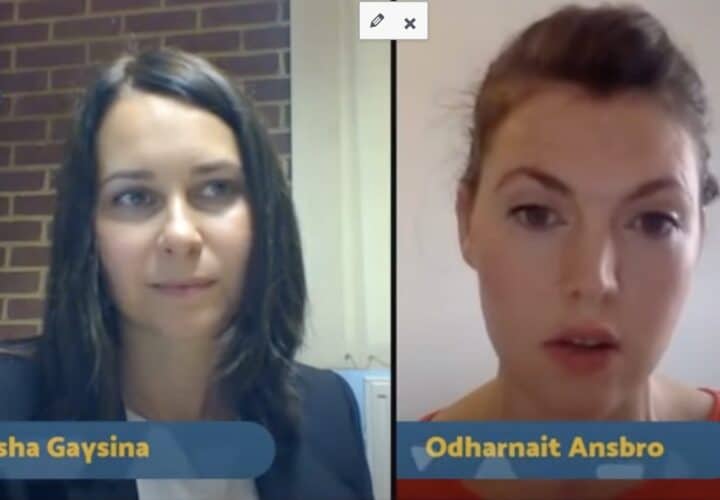Neurologist Majid Fotuhi discusses his brain rehabilitation program and how to improve cognitive function.
According to neuroscientist Dr. Majid Fotuhi, age-related cognitive decline is as normal as loss of muscle mass. But just like regular exercise can keep aging bodies in shape, he says, healthy lifestyle habits and brain exercises can slow cognitive decline and even improve cognitive function.
Being Patient spoke with Fotuhi, a neuroscientist and the medical director of NeuroGrow Brain Fitness Center in McLean, Virginia, about his research and work on brain rejuvenation and rehabilitation — and how, just like muscles, the brain can become stronger with exercise — even later in life. Good sleep, a healthy diet and regular exercise can help maintain that strength.
How Does Exercising the Brain Work?
Being Patient: A lot of people think of the brain as a muscle, and while that’s not strictly accurate, what actually happens to our brains when we make them stronger?
Dr. Majid Fotuhi: Your brain is made up of cells called neurons, and neurons have extensions which connect with other neurons. Your brain has thousands of blood vessels and capillaries that feed the neurons and the connections between them. We know for a fact that you can improve your brain function by a number of ways.
Number one, increasing your number of neurons. When you exercise a lot, you have more neurons, which is really incredible that you can create more neurons through vigorous exercise.
Number two, you can make more fiber bundles, the little highways from one side of the brain to the other. The more you use your brain, the more you solidify those connections between different parts of the brain.
Number three is that you can have more synapses. When a neuron approaches another neuron and touches it, it provides support for communication. And the more of these synapses you have, the stronger the communication will be between neurons in different corners of your brain. If you have a lot of synapses, you can think better, you can solve more problems, you can remember better.
Number four is that you can have more blood vessels. As you exercise or meditate, you actually create more of these branches of blood vessels that carry more oxygen and nutrition to your brain. So those are four ways that you can literally grow your brain and make yours a healthier and stronger brain. And these things don’t require years of work to get there. With our brain fitness program, which is actually a brain rehabilitation program, you can get results within three months.
Being Patient: When we say that we’re making our brains stronger, what does that mean? Are we getting smarter. Does it mean that our memory will be enhanced?
Dr. Majid Fotuhi: Your brain has different corners, different areas. There’s a part of your brain in front that’s important for attention, concentration, and there’s a part of the brain on the side that’s important for memory.
You can work out these different brain areas just like you can work out different muscles. When you exercise you increase blood flow and synapses and fiber bundles throughout your brain, so exercise is one of those things that’s helpful for all brain areas. But if for example you had issues with attention, then you could focus on doing targeted brain games that challenge your attention and concentration.
For example, you can memorize a deck of cards. Or you can play brain games that require you to think fast, solve problems fast, and respond fast. If you have difficulty with navigation for example, you can work on brain areas related to navigation. Your brain has different components, and different components are related to different brain functions. If you do targeted brain training, you can improve those areas of the brain, and that’s what we do here.
How Important is Age in Rehabilitating the Brain?
Being Patient: Can these targeted brain games be used across all ages? Can you improve memory function and processing in kids with attention problems?
Dr. Majid Fotuhi: Yes. The problem with the lack of sufficient evidence that brain games help is due to the way we measure cognitive function. See, if you do a brain game that helps you think faster, and then you’re tested on cognitive abilities that may or may not have a component for processing speed, you may not see results.
Also, if you give them a test for cognitive abilities with a total summary at the bottom, and you’ve done brain games and haven’t seen results, it’s because the results you’ve produced have been diluted in the overall cognitive evaluation that was done. It’s like if I worked on your biceps, and then I asked you to run, you won’t run any faster.
And that’s what the problem is with lack of sufficient evidence in the literature to support that brain games are good. You need to have targeted brain games for the specific cognitive deficits that people have. See, the big problem that we see these days is that we don’t measure cognitive function. We just talk about “Oh, my brain isn’t working well,” and whether if you exercise or do brain games or take certain supplements your brain function will improve.
But your brain is such a complex organ with so many functions that unless you look specifically as to which part of the brain you’re targeting, and which brain functions actually improve, then you won’t see results. You need to be more targeted in the deficits and the results you’re looking for.
In the twelve week brain training program we do here—which people can do on their own, nothing is magical and I’ve outlined everything we do in my book—are common sense things: lifestyle changes, brain training, better sleeping, things you’ve heard elsewhere. You just have to do them like you mean it. We’ve found that in our patient population of people in their 60s and 70s, 84 percent of patients had statistically significant improvements in their cognitive abilities.
I don’t think that there’s anything magical about what we do, other than that we coach people in the same way that you might coach someone to improve at basketball. So the short answer is that the brain has a lot of malleability, that malleability exists throughout life, and if you do targeted brain training in the setting of everything else—diet, exercise, sleep—you see better results.
Being Patient: Are there things we can do to improve our memory today, and is there a point at which it’s too late?
Dr. Majid Fotuhi: It’s absolutely not too late at all. There are lots of things that can improve your brain health and brain function. A lot of people assume that when they get older, they cannot improve their brain function, and that’s absolutely wrong.
There are so many things they can do, in fact I’ve written three books about the topic, but the short answer is yes. Your brain has a high degree of malleability, your brain has what’s called neuroplasticity, and there are many things you can do to make your brain younger by six or even 10 years.
Being Patient: How much of a difference does age make in the success of the program? Is it harder to improve if you start at a later age?
Dr. Majid Fotuhi: The short answer is yes. Again, we analyze the data from our patients, and the best results were seen in patients with milder problems and who were younger. So a 63-year-old who had a 30 percent decline in their memory and a 40 percent decline in their processing speed would have much better results after three months than an 84-year-old who had 80 percent decline in their memory and a 90 percent decline in their processing speed.
So I think the best time to reinvigorate your brain and develop healthy habits, if you don’t have cognitive decline already, is in your 40s and 50s. But it’s never too late. I had a patient who was 79 years old, and she could memorize a list of a hundred words. So we do have patients that are older, and they may require more than three months, but their brain has plasticity. It’s not that they can’t, it just takes more effort.
Can Brain Rehabilitation Help People with Dementia?
Being Patient: Have you applied your research to cases of neurodegeneration like people with dementia? Is it possible to work against the disease and somehow slow it down and improve memory?
Dr. Majid Fotuhi: I wish that I could tell you that we had magical results and that they improve. By the time a person crosses a line of cognitive decline and can no longer remember what year it is or forget the names of their family members, unfortunately we have not seen significant improvement in those kinds of patients.
We have had some patients come and take part in the program even though we don’t recommend it for people with significant cognitive deficits, and the results have been interesting. We see patients become calmer, they smile more, they sleep better, so there are some small benefits in patients with severe cognitive deficits.
But people who benefit the most are people in their 50s and 60s who have started to show cognitive deficits who do these sort of things in a coordinated fashion with close monitoring so we can track their improvements.
Edited for clarity




